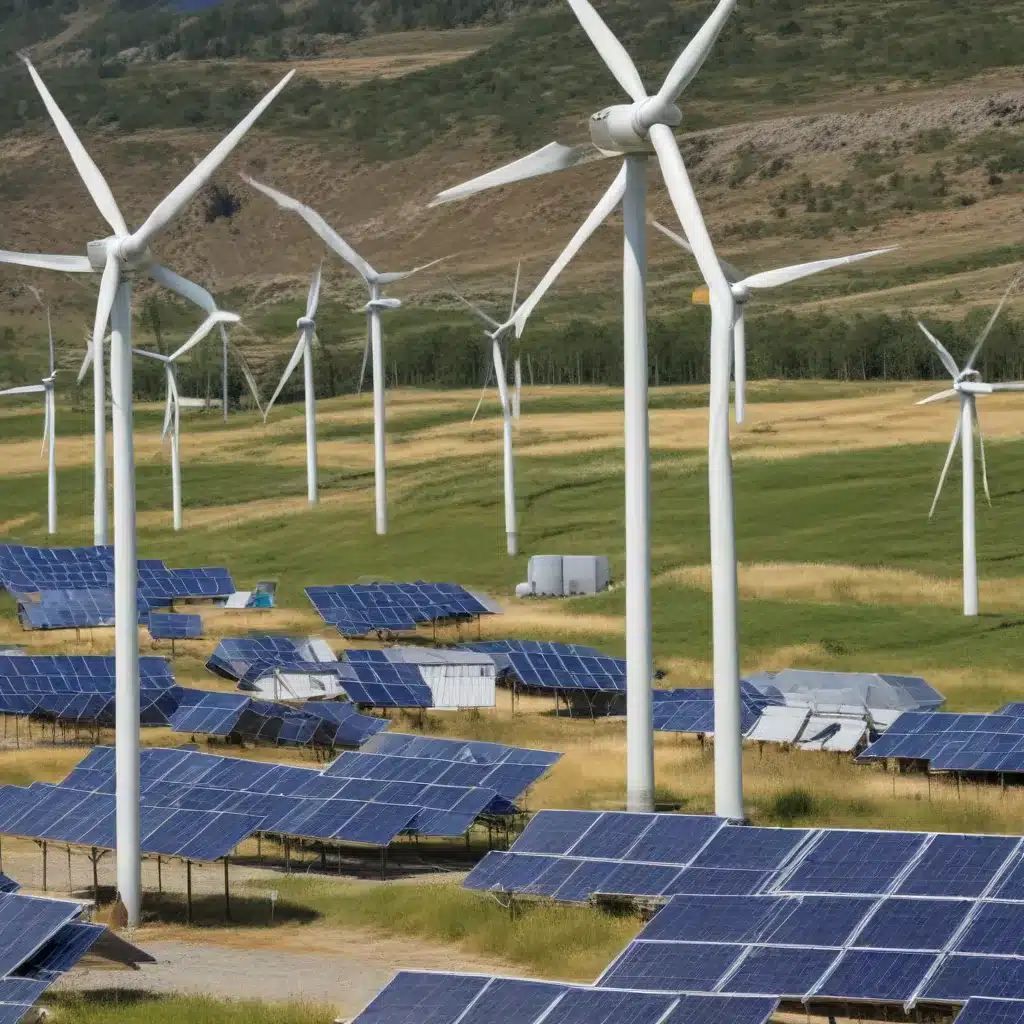
Overcoming Regulatory Barriers to Renewable Energy Prosumer Models
As the European Union accelerates its transition to a carbon-neutral economy, the role of renewable energy prosumers has become increasingly vital. Prosumers are energy consumers who also produce their own renewable electricity through technologies like rooftop solar panels or small-scale wind turbines. By generating, storing, and potentially even selling their surplus power, prosumers can actively participate in the decarbonization of the energy sector.
However, the widespread adoption of renewable energy prosumer models faces significant regulatory barriers across Europe. Outdated policies, ambiguous regulations, and utility structures that prioritize centralized, fossil-fuel-based generation often hinder the proliferation of distributed renewable energy resources. Overcoming these obstacles is crucial if Europe is to realize its ambitious net-zero emissions goals by 2050.
Policy and Legislative Frameworks
At the EU level, the Renewable Energy Directive and the Clean Energy for All Europeans package have laid the groundwork for a more prosumer-friendly regulatory environment. These policies enshrine the rights of energy consumers to generate, store, consume, and sell their own renewable electricity. They also mandate the removal of administrative and regulatory barriers to self-consumption and energy community models.
Yet, the implementation of these directives varies widely across European nations, with some member states moving faster than others. In countries like Germany, the Netherlands, and Belgium, progressive regulatory frameworks have enabled the rapid growth of residential and community-based renewable energy projects. Conversely, in parts of Eastern and Southeastern Europe, restrictive policies, complex permitting processes, and utility-dominated markets continue to hinder prosumer development.
Incentives and Support Mechanisms
To incentivize the rise of renewable energy prosumers, many European governments have introduced a range of financial support schemes. Feed-in tariffs, net metering, and self-consumption bonuses have proven effective in boosting the economic viability of prosumer investments. Some nations, such as Italy and Spain, have also rolled out renewable energy auctions that reserve a portion of capacity for small-scale and community-owned projects.
Beyond direct financial incentives, regulatory frameworks that facilitate peer-to-peer energy trading, virtual net metering, and blockchain-based energy transactions can further empower prosumers to monetize their renewable energy production. Integrating prosumer-generated electricity into demand response and grid balancing mechanisms can also unlock additional revenue streams.
Emerging Regulatory Trends
Across Europe, there is a growing recognition of the need to adapt regulatory frameworks to the evolving realities of the energy transition. Several countries, such as France and the United Kingdom, have introduced regulatory sandboxes that allow for the testing of innovative prosumer business models and technologies, paving the way for their wider adoption.
Additionally, some nations are exploring the use of carbon pricing mechanisms, such as emissions trading systems or carbon taxes, to incentivize the shift towards renewable energy prosumerism. By internalizing the environmental costs of fossil fuel-based electricity, these policies can enhance the competitiveness of distributed renewable generation.
Technological Innovations in Renewable Energy Prosumerism
Advances in distributed energy technologies have been a key driver of the prosumer movement. Rooftop solar photovoltaic (PV) systems, small-scale wind turbines, and residential energy storage solutions have become increasingly affordable and accessible, empowering consumers to take control of their energy production.
The integration of these distributed resources with smart grid technologies and digital energy platforms further enhances the capabilities of renewable energy prosumers. Peer-to-peer energy trading, virtual power plants, and blockchain-based energy settlements are just a few examples of the innovative solutions that are revolutionizing the way energy is generated, distributed, and consumed.
Economic Considerations for Renewable Energy Prosumers
The financial viability of renewable energy prosumer models is a crucial factor in their widespread adoption. Levelized cost of electricity (LCOE) calculations show that in many European regions, the cost of self-generated renewable electricity is already lower than grid-supplied power from conventional sources. Furthermore, the availability of net metering, feed-in tariffs, and self-consumption incentives can significantly improve the return on investment for prosumer projects.
As the renewable energy sector matures, new business models are emerging that unlock additional value streams for prosumers. These include energy-as-a-service offerings, community energy cooperatives, and virtual power purchase agreements (VPPAs) that allow prosumers to sell their excess electricity to the grid or directly to corporate buyers.
Social and Environmental Impacts of Renewable Energy Prosumerism
The rise of renewable energy prosumers has the potential to deliver significant social and environmental benefits. By empowering local communities to take an active role in their energy supply, prosumer models can foster greater energy democracy and social cohesion.
Moreover, the widespread adoption of distributed renewable energy generation can lead to substantial emissions reductions, contributing to the EU’s ambitious climate goals. Prosumer-generated electricity also reduces the need for costly grid infrastructure investments and grid losses, further enhancing the environmental and economic advantages of this model.
However, it is crucial to ensure that the transition to renewable energy prosumerism is equitable and inclusive. Policymakers must address barriers to access, such as the upfront costs of renewable energy technologies, and ensure that low-income households and marginalized communities can also participate in and benefit from the energy transition.
As the European Union continues to navigate the complex landscape of energy regulation, the removal of barriers to renewable energy prosumerism will be a crucial step in unlocking the full potential of distributed renewable resources. By fostering innovative policies, supportive financial mechanisms, and technological advancements, Europe can empower its citizens to become active participants in the clean energy revolution. This will not only accelerate the path to a net-zero emissions future but also cultivate a more resilient, democratic, and sustainable energy system.







